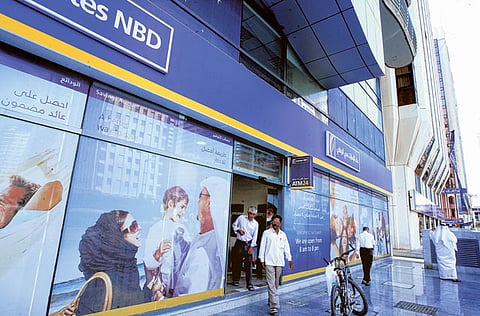UAE banks expect revival in credit demand from Q1 2021
Credit standards are likely to tighten for business lending in Q1 2021

Dubai: UAE banks expect to see an increase in credit demand in the first quarter of 2021 according to the fourth quarter 2020 credit sentiment survey of the Central Bank of UAE.
The Credit Sentiment Survey is a quarterly publication of the CBUAE, which collects information from senior credit officers from all banks and financial institutions extending credit within the UAE.
The survey respondents are expecting an increase in overall credit appetite for both business and personal loans in the current quarter.
Credit standards for business loans are predicted to tighten, while credit standards for personal loans are expected to ease marginally.
Survey results for the December 2020 quarter revealed a moderate increase in appetite for business loans within the UAE, coupled with a continuous tightening of credit standards.
Demand appetite for personal loans, however, remained unchanged although credit standards tightened moderately.
Loans to corporates and SMEs
For the December quarter, survey respondents reported that demand for business loans has moderately declined with a net balance measure of -10.6, which was evident across all Emirates. The decline in demand was especially marked in the case of loans to small and medium enterprises, conventional loans, and expat loans.
The primary factors influencing the change in demand for business loans were revealed to be customers’ sales, property market outlook, and seasonal influences. With respect to expectations for the March 2021 quarter, survey respondents expressed an optimistic outlook for business loan demand, expecting a notable increase across all Emirates.
Personal loans
Survey results indicated that demand for personal loans remained unchanged, in aggregate, as suggested by a net balance measure of 0 for the December quarter. The muted demand was attributed to the weakening of demand in Dubai, which was offset by a strengthening of demand in Abu Dhabi and Northern Emirates.
By market segment, demand for personal loans decreased moderately in the December quarter across the board, with the exception of personal – credit card and Islamic loans, which increased, and personal – other, which remained unchanged.
The decrease in demand was most notable among housing – other (includes refinancing, renovations), non-housing – investment, and housing – investment. The change in demand for loans was largely supported by change in income, housing market outlook, and financial market outlook. With respect to expectations for the next quarter, survey respondents expect the demand for personal loans to recover with a notable increase.
Why sluggish loan demand in 2020?
Demand for loans (credit demand) at retail and corporate levels has been affected last year, resulting in overall poor credit growth (low single digits). The pandemic and contraction in many sectors have forced corporates to postpone of capital expenditures. This has led to a lower loan demand from businesses. Shutdowns, job losses and salary cuts in the private sector are to blame for the poor demand for retail loan products such as personal loans, auto loans, mortgages and credit cards. There’s a flip side too. When the loan demand declined, banks tightened their lending norms to guard against rising loan losses and higher provisions. This is attested by the credit sentiment surveys of the Central Bank of UAE.
Sign up for the Daily Briefing
Get the latest news and updates straight to your inbox







